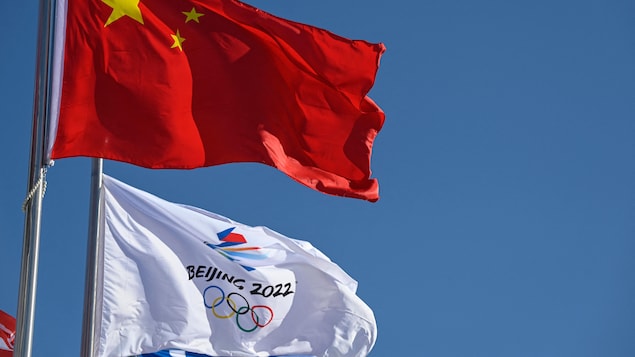I wonder if we’d rather be on Plan E: catching COVID-19 ASAP.
I’ll explain.
A few days ago I was talking with one of our best hopes for a medal at the Beijing Olympics.
This athlete, whose name I will remain silent, is in Europe and is trying by all means not to catch COVID while a large part of his team and rivals have been tested positive in recent days.
When we want to win the Olympics, we have to have plans A, B, C, D and accept that our path to the podium may go through Plan E which we don’t even know existed or why at the time of planning.
Faced with the observation that the cat-and-mouse game with COVID seems too difficult, I discussed with this athlete the idea of catching coronavirus as quickly as possible.
Sorry if I offended some, but seeing all that’s going on in the world, this athlete and many others are sure to get COVID unless they live in a bedroom and never get out of it by the Olympics.
It’s the safest way to get to Beijing, but let’s face it: many athletes still have to try to qualify and thus travel around the world.
They should also go to their training site where they will unambiguously meet people exposed to the virus.
A national team coach usually works with five to ten athletes and there is a team of experts such as physiotherapists or doctors who will likely have limited contact with the outside world.
So, in the face of this mess, I put on my logical coach hat and here are the three options that present themselves to me:
- If a player is already eligible, I isolate him in a room with a treadmill and hatch to feed him for three to four weeks.
- We play Russian roulette and continue to train and compete with utmost safety. We don’t talk to anyone anymore, even the communication between me and the athlete will be over the phone. This also applies to physical therapy treatments that are conducted via video conferencing where the athlete performs his or her own treatments.
- Detect COVID ASAP, as we have about two weeks to catch it before we are banned from the Olympics.
Faced with such a dilemma, I always like to use real contexts when possible.
Let’s ask ourselves if at this point we’d rather be Michaela Shiffrin, who contracted coronavirus at the start of the holiday season, or one of those Canadian snowboarders based in Europe who has to start developing OCD by trying everything. Not to announce positive results before leaving for China.
While I don’t wish our skaters any luck, I’d rather be in a Shiffrin position. I would never have said this a few weeks ago, but now we’re faced with completely different data.
Thinking of the Free Ski World Cup at Le Relais (5 January) and the Mont-Tremblant Cup (January 7 and 8), I can’t wait to see who will be the lucky or unlucky one who will carry the virus when they arrive at the airport.
Is the lucky one unlucky or the unlucky one the lucky one?
You see how ridiculous all this is. How many athletes will be missed if the games start as scheduled on February 4th?
The situation is very different from what we experienced a few weeks ago outside of Tokyo.
Personally, I didn’t know anyone infected with COVID at the time.
Do I really need to tell you how much I know now?
I know postponing the Olympics for a year, again, isn’t that easy, but it’s possible, and the only other option in my opinion is to cancel.
To choose between the two, my choice is clear.
I have no hope that the Chinese organizers will raise the white flag and suggest postponing the Games. So the IOC and its members, the international sports federations, will have to face the facts and impose a one-year postponement.
Otherwise, quickly, there are a few weeks left where announcing a positive result will ultimately not be negative.

“Alcohol scholar. Twitter lover. Zombieaholic. Hipster-friendly coffee fanatic.”

